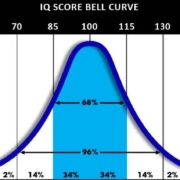In an October 22, 2016 Policy letter (October 22, 2016 to Jennifer Carroll), the U.S. Department of Education’s Office of Special Education and Rehabilitative Services (“OSERS”) addressed Independent Educational Evaluations (“IEE”) and whether, in certain circumstances, a school district must be given an opportunity to conduct an evaluation before a parent has the right to an IEE.
34 CFR §300.503 of the Individuals with Disabilities Education Act (“IDEA”) covers IEEs. The specific question was this:
Whether, once a district’s evaluation is complete and the parent communicates a desire for a child to be assessed in a particular area in which they have not previously expressed concern, would the district have the opportunity to conduct an evaluation in the given area before a parent invokes the right to an IEE?
This is an important issue because having to wait for the district to actually complete the evaluation in question could add a substantial amount of time to the process. OSERS began its analysis by reviewing the IDEA’s evaluation procedures. OSERS first pointed to the requirement that the public agency use a variety of assessment tools and strategies to gather relevant functional, developmental, and academic information about the child that may assist in its determination of whether she is a child with a disability and, if this is found to be the case, to ensure that an Individualized Education Program (“IEP”) is properly drafted to meet the unique needs of the child. The evaluation must be “sufficiently comprehensive to assess the child in all areas related to the suspected disability, and must identify all of the child’s special needs, whether or not commonly linked to the disability category in which the child has been classified.”
OSERS went on to describe the rights of parents of a child with a disability under the IDEA to seek an IEE at public expense when the parents disagree with the evaluation conducted by the public agency. A reasonable argument could be made that in the case at issue, a parent could not disagree with the district’s evaluation in question because that particular evaluation hadn’t occurred yet. However, OSERS finds that this is not the proper way to analyze the issue because the IDEA treats the district’s “evaluation” to be the sum of all the individual assessments conducted. Using this reasoning, OSERS finds that the parents’ disagreement would be that the public agency’s evaluation did not assess the child in all areas related to the suspected disability and would therefore be entitled to an IEE before the district had an opportunity to perform the assessment itself.
OSERS reiterated that the IDEA affords a parent the right to an IEE at public expense and doesn’t require that the public agency have an opportunity to cure the defects of the evaluation. It should be noted that a parent is entitled to only one IEE at public expense each time the public agency conducts an evaluation with which the parent disagrees.
As always, feel free to contact me should you have specific concerns about your child.







